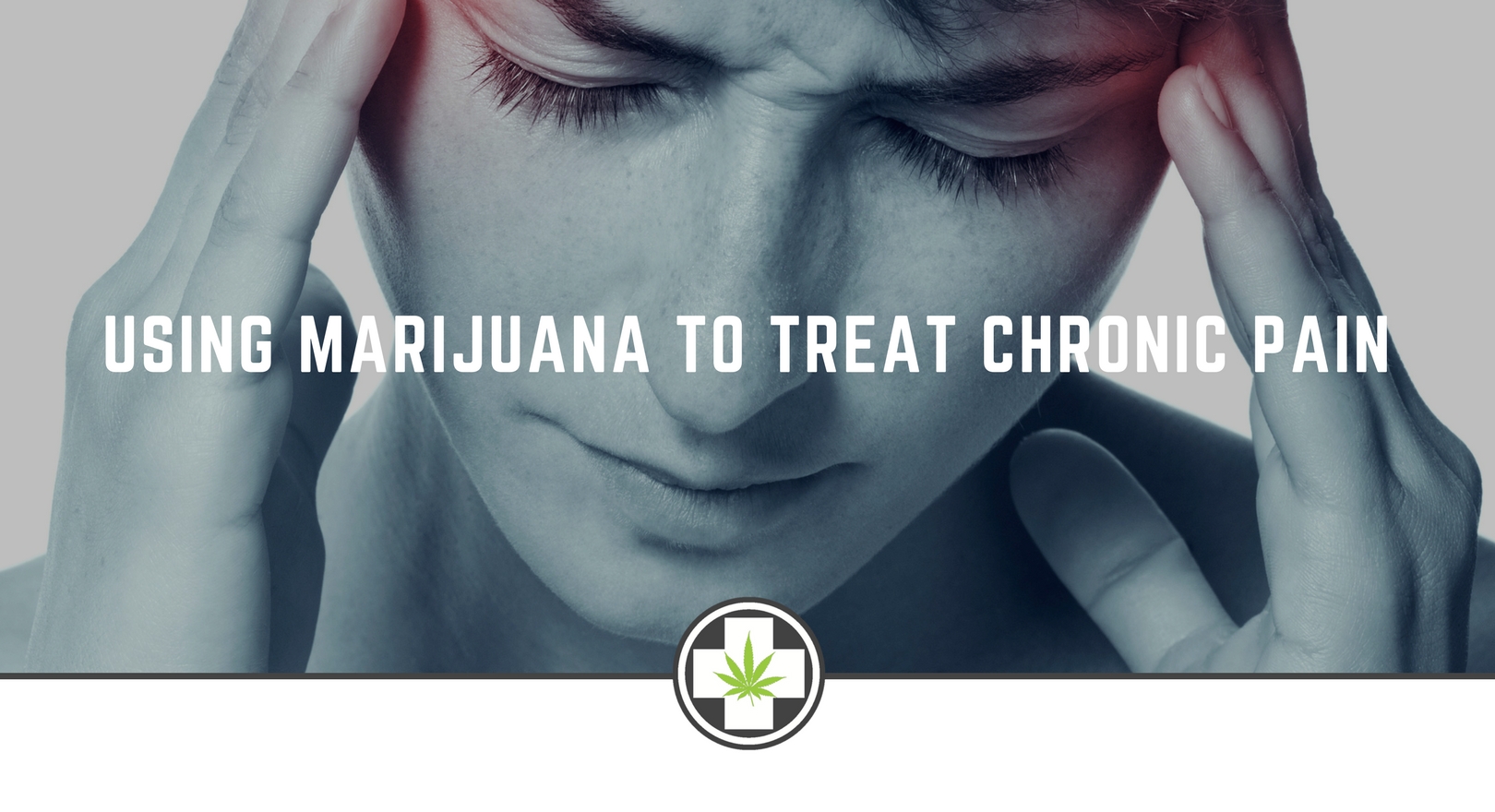Using Marijuana to Treat Chronic Pain
You wake up in the morning. Roll out of bed. You’re ready to start your day, but you can already feel it.
Severe, chronic pain.
Maybe you felt it before you even got out OF bed. Or maybe it was so bad, you hardly slept during the night.
Whatever the case, you know this much: you want the pain to go away.
Well, there’s good news:
Studies show that using medical marijuana to treat chronic pain might actually work!
Why We Feel Pain In the First Place
In a previous post, we discussed anxiety. Furthermore, we said that anxiety was like having your own personal alarm system inside your body, warning you of possible danger.
But if anxiety is an early-warning detection system, pain is like an intrusion alarm. Pain means your body is taking damage, and you need to do something about it quickly.
It’s a good system. After all, it keeps you from touching hot frying pans, cactuses or other things that could potentially harm your body.
In fact, pain is the reason that most of us go to the doctor in the first place. We want to find out why we’re in pain and how to make it stop. And we expect our physician to give us those answers.
So yes, pain has a purpose: it helps us stay alive.
But What Do You Do When the Pain Won’t Go Away?
Even after you’ve removed yourself from the harmful situation…
And after you’ve seen the doctor, followed his/her advice and taken the necessary medication…
And even after you’ve had the operation that was supposed to fix the condition you were suffering from…
Sometimes, the pain just won’t go away.
And if it’s left untreated, chronic pain can
- Prevent you from being able to perform daily activities
- Affect your job performance
- Disrupt your sleep pattern
- Cause mental and emotional distress/depression
In other words, chronic pain can ruin the quality of your life.
At that point, your pain is no longer helping you function safely. It’s not warning you of an underlying condition.
Chronic pain itself becomes the condition that needs to be treated.
Why Not Just Take Over-The-Counter Pain Medication?
Oftentimes, over-the-counter painkillers aren’t strong enough to treat the severe, chronic pain.
You should never increase the recommended dosage of an over-the-counter pain medication in order to treat your chronic pain. Especially without consulting your doctor.
- The #1 reason people call Poison Control centers is due to of acetaminophen overdose.
- Acetaminophen overdoses lead to 56,000 emergency room visits, 2,6000 hospitalizations and 458 deaths a year as a result of liver failure.
- Non-steroidal anti-inflammatory drugs (NSAIDs) such as aspirin and ibuprofen aren’t entirely risk-free either. Overdose risks include gastrointestinal ulcers, heart attacks and strokes.
- 41,000 older adults are admitted to the hospital each year because of NSAIDS.
- 3,300 people die each year from NSAIDs-related ulcers.
The Problem With Opioid Painkillers
In certain cases, physicians may prescribe opioid painkillers to treat patients suffering from severe, chronic pain
But opioid drugs come with significant side effects such as
- Nausea
- Constipation
- Respiratory depression
- Dependency/Addiction
We’ve written in the past about the opioid epidemic that is currently sweeping our nation. Over 33,000 Americans died from an opioid overdose in 2015.
Medical Marijuana: A Potentially Safer Solution to Chronic Pain?
- For thousands of years, people have used marijuana as a medicine because of its pain-relieving and anti-inflammatory powers.
- Marijuana works directly with your body’s endocannabinoid system, which is responsible for managing your pain.
- When you consume cannabinoids, marijuana’s active ingredients, they bind to cannabinoid receptors in your nervous system, reducing the level of pain you’re experiencing.
- Veterans, NFL players and fibromyalgia patients have reported success in using medical marijuana to treat chronic pain.
Here’s what Dr. Sunil Kumar Aggarwal has to say on the subject:
Is It Safe to Use Marijuana to Treat Chronic Pain?
- Marijuana does have side effects such as
- Increased appetite
- Drowsiness
- Dry mouth
- Impaired motor skills
- Increased anxiety
- However, these side effects depend heavily on the amount of marijuana you use as well as the type and strain. You should consult your doctor and dispensary staff member to find the best type of marijuana for your condition.
- There is ZERO evidence of fatalities directly caused by marijuana overdose. The same can’t be said for acetaminophen, NSAIDS or opioids.
- We’re not saying that people shouldn’t use acetaminophen, NSAIDs or opioids to combat their pain. These drugs can be effective if used properly. However, given marijuana’s relative safety, you should definitely factor it in when thinking about pain relief options.
- Medical marijuana is not as powerful as opioid painkillers, but the two can be used together in a low-dose combination if done under the instruction and supervision of a qualified doctor. Working this way, marijuana can counteract the opioid’s addictive qualities, making it easier for people to wean themselves off of the opioid altogether.
In this video, medical marijuana patient Wendy Hart shares her own experience of using medical marijuana along with opioid medication (her interview begins around the 1:34 mark):
If You’re a Nevadan Who Suffers From Severe, Chronic Pain, You Qualify for Medical Marijuana
Don’t wait any longer! If you suffer from severe, chronic pain schedule an appointment with us online. We want to evaluate you and help you get back on the road to healing and wholeness!
And if you’re a current patient who uses medical marijuana to treat chronic pain, give us a shout on social media and share your experiences!
SOURCES:
Blesching, U. (2015). The Cannabis Health Index: Combining the Science of Medical Marijuana with Mindfulness Techniques to Heal 100 Chronic Symptoms and Diseases. Berkeley (California): North Atlantic Books.






